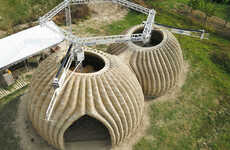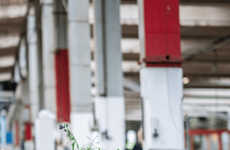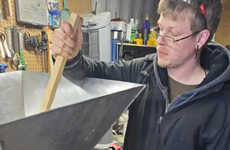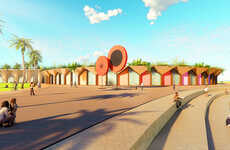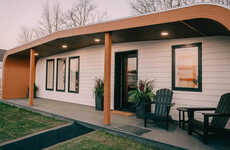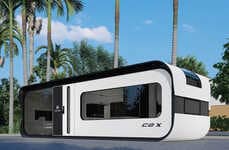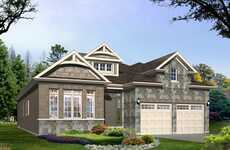
Woodpecker WPC Uses Coffee Husks to Create Accessible Housing Kits
Josh Thompson-Persaud — May 20, 2021 — Eco
References: woodpecker.co & dezeen
Colombian development company Woodpecker WPC sources sustainable construction materials by using leftovers from coffee production processes. The company turns coffee husks among other elements of coffee waste into prefabricated blocks, which are then used to build homes. Conveniently, these blocks do not require advanced tools or specialized training to build with, making the construction process easy and efficient for local communities.
Woodpecker WPC provides these sustainable materials to low-income communities in order to address housing concerns in hard-to-reach areas of Colombia. Due to the blocks' unique composition, they are fairly lightweight, which makes them easy to transport by vehicle or with working animals. The blocks are packaged in housing kits that can be easily assembled on site. So far, Woodpecker WPC has contributed to the construction of approximately 3,000 houses as well as 20 schools. Through the production of these sustainable materials, Woodpecker WPC can address both social and environmental concerns at once.
Image Credit: Woodpecker WFC
Woodpecker WPC provides these sustainable materials to low-income communities in order to address housing concerns in hard-to-reach areas of Colombia. Due to the blocks' unique composition, they are fairly lightweight, which makes them easy to transport by vehicle or with working animals. The blocks are packaged in housing kits that can be easily assembled on site. So far, Woodpecker WPC has contributed to the construction of approximately 3,000 houses as well as 20 schools. Through the production of these sustainable materials, Woodpecker WPC can address both social and environmental concerns at once.
Image Credit: Woodpecker WFC
Trend Themes
1. Sustainable Housing Kits - Innovating sustainable prefabricated housing kits using unique materials.
2. Upcycling Waste Materials - Repurposing unusual materials that would have otherwise gone to waste.
3. Efficient DIY Building - Making building accessible to communities with limited resources and experience.
Industry Implications
1. Construction - Creating eco-friendly and affordable housing solutions for low-income communities.
2. Sustainable Materials - Developing new ways to use waste materials to create eco-friendly construction materials.
3. Social Housing - Addressing housing concerns in hard-to-reach areas of Colombia by providing affordable and eco-friendly housing solutions.
3.6
Score
Popularity
Activity
Freshness

